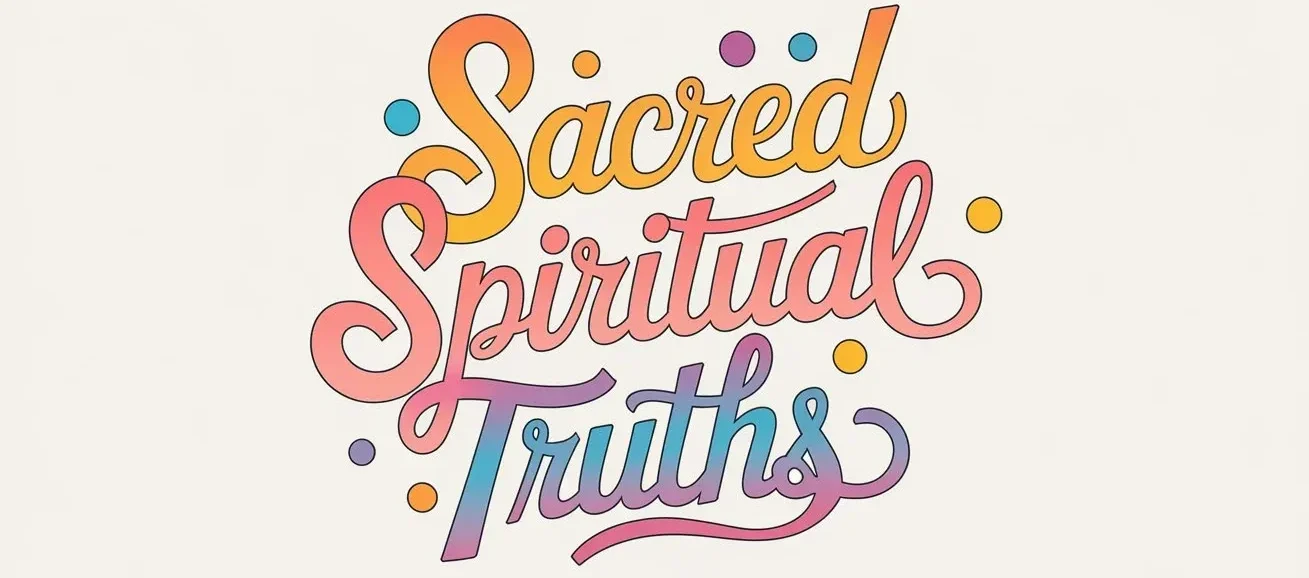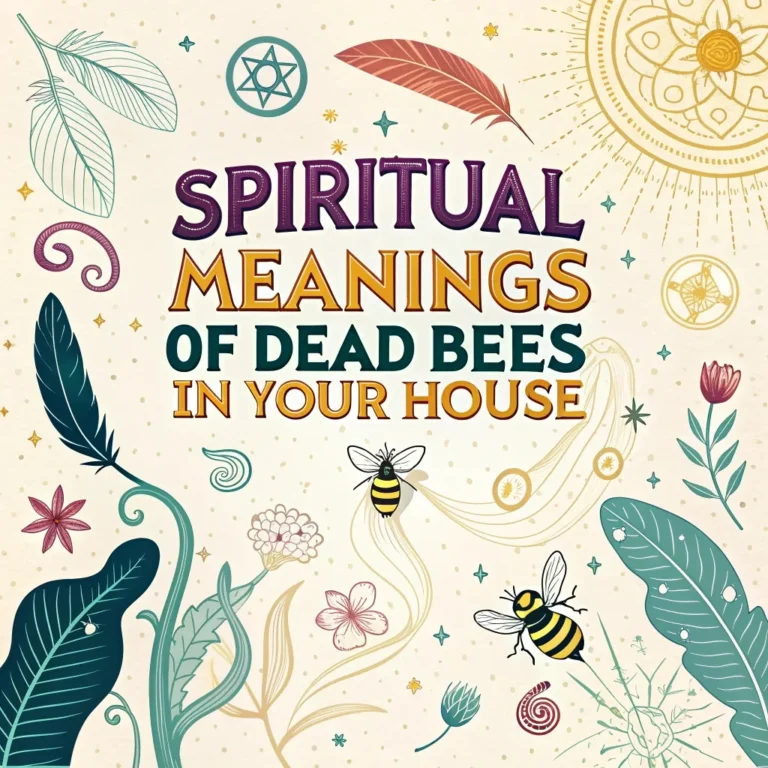11 Spiritual Meanings of the Seven Deadly Sins: Inner Conflict and Spiritual Warnings
The seven deadly sins are more than old moral lessons. They can show us our inner conflicts and spiritual warnings. When you feel pride, greed, or envy, these feelings point to areas where your soul needs growth. These sins act as mirrors, revealing hidden fears or unresolved emotions. They challenge you to think, forgive, and find balance. Understanding their deeper meanings can help you grow authentically. Want to learn how each one guides you? Let’s explore more.
Pride as a Call for Humility and Self-Ameration
Pride can show that you’re confident or proud of your achievements. But it can also mean you see yourself as better than others. When pride becomes too strong, it makes it hard to see your real strengths and weaknesses.
This is when humility can help. Humility guides you to reconnect with your true self and see others more clearly. Recognizing when pride takes over allows you to reflect. It helps you build genuine connections with yourself and with others.
The goal isn’t to belittle yourself. It’s to keep a balance between confidence and humility. By increasing self-awareness, you gain a clearer perspective. This guides you to grow and develop deeper relationships. It also helps you stay humble and open-minded on your spiritual journey.
Greed Reflecting Inner Desire for Fulfillment and Balance
Sometimes, greed isn’t just wanting more. It shows a deep inner desire for fulfillment and balance. When you feel greed’s pull, it can mean you want personal growth and emotional strength.
Instead of only chasing material things, think about what truly makes you happy. Connections with others or self-discovery can give you real meaning.
Greed acts as a reminder to find satisfaction inside yourself. Embrace your inner desire for balance. This helps you feel a sense of belonging and take care of your needs.
Focusing on inner fulfillment helps you grow stronger and more emotionally resilient. This path supports your spiritual journey and leads to true happiness.
Lust Signaling Deep Needs for Connection and Self-Understanding
Lust reveals more than a desire for physical closeness. It signals that you need deeper connection and understanding inside yourself and with others. Often, this craving comes from unmet emotional needs or repetitive relationship patterns. These patterns leave you feeling unfulfilled.
Lust can be a mirror. It shows where your heart longs for genuine intimacy, trust, or acceptance. Instead of just pursuing fleeting pleasures, take time to explore what you truly want beneath these feelings. Ask yourself: Are you seeking validation, reassurance, or a sense of belonging?
Recognizing this need helps you form healthier relationships. It also promotes better self-understanding. By accepting these feelings gently, you can create more authentic connections. This process leads to a richer inner life and greater emotional fulfillment.
Envy as a Mirror for Self-Reflection and Contentment
Envy often makes you focus on what others have—like skills, possessions, or achievements. Instead of letting envy control you, view it as a chance to learn about yourself. Ask why you feel this way. Notice what your feelings reveal about your wants and needs.
Use this moment to grow your emotional understanding. Recognize your strengths. Appreciate what makes you special.
Here are three simple ways to reflect:
- Be thankful for what you already have.
- Cheer for others’ success instead of feeling jealous.
- Set personal goals based on your values, not others’ accomplishments.
Gluttony Indicating Imbalances in Self-Identity and Moderation
Gluttony reveals issues about how you see yourself and what moderation means. When you notice yourself overeating or overindulging, it’s a sign to examine your feelings inside. Use meditation to become aware of your patterns.
This practice helps you see if feelings like emptiness or wanting validation drive your behavior. True balance means understanding your needs without excess. It helps create a lifestyle that supports both your body and spirit.
Wrath Revealing Unresolved Pain and Need for Forgiveness
Sometimes, anger or frustration hide deep inside us. These feelings can come from unresolved pain from the past. When wrath appears, it usually masks wounds we haven’t healed or forgiven.
To understand this better, try these simple steps:
- Think about your feelings often. Notice what makes you angry or upset. This helps you see where your pain starts.
- Take slow, deep breaths or practice mindfulness. Staying calm when anger grows shows you have control.
- Talk honestly with someone you trust. Sharing your feelings can lessen hidden pain and make you feel lighter.
These steps help you recognize and handle anger. They can make you feel stronger and more in control of your emotions.
Sloth as an Indicator of Spiritual Misalignment and Lack of Purpose
When you feel unmotivated or sluggish about daily tasks, it may show you’re out of sync spiritually. Sloth is more than laziness; it reveals a gap between your actions and your true purpose. To realign yourself, try simple meditation exercises that help you reconnect with your inner self.
Use energy healing practices, like Reiki, to refresh your spirit and increase your drive. These actions aren’t about adding more to your schedule but about rediscovering your purpose and sense of belonging. When your energy flows smoothly, your passions return.
Even small changes can awaken your inner light and remind you that you’re part of something bigger. Sometimes, all you need is a gentle push in the right direction to find your motivation again.
The Interplay of Sin and Shadow Self in Personal Growth
Our darker impulses, called sins, don’t only exist on the surface. They live inside you in a part called the shadow self. This hidden part holds feelings, fears, and impulses you haven’t resolved. These inner parts shape your thoughts and actions.
To grow spiritually, you need to understand and accept your shadow self. This process is called shadow integration.
Here are three simple steps to do that:
- Practice self-awareness. Observe your reactions and feelings honestly, without judging yourself.
- Confront and accept your shadow traits. Doing this turns shame into understanding and compassion.
- Use your awareness to improve yourself. Turn inner conflicts into chances to grow personally.
This approach helps you become more aware of your true self and supports your personal growth.
Recognizing Inner Warnings in Behavioral Patterns and Emotions
Noticing inner warnings in your behavior and feelings helps you stay in touch with yourself. When you become aware of your emotions, you see small signals. These signals show when something is wrong. For example, feeling annoyed or stressed might mean you’re impatient or afraid.
Paying attention to these signs helps you catch problems early. It allows you to return to your values. Think of these warnings as a gentle voice inside telling you to stop and think.
The more you notice these signals, the better you understand your inner feelings. This awareness helps you avoid mistakes and also helps you grow. It builds a stronger sense of connection with yourself and with others.
The Transformative Power of Confronting Inner Darkness
Confronting your inner darkness can be uncomfortable. But this step often leads to growth. When you face your shadows with awareness, you unlock understanding and healing.
Embracing this process helps you see beyond surface flaws. It reveals qualities you may not have noticed before. Here are three ways this journey can give you strength:
- Accept parts of yourself you have avoided. This builds self-compassion.
- Use fears or regrets as lessons. Turn shadows into sources of strength.
- Feel a stronger sense of belonging inside. Recognize everyone has struggles.
This process helps you know yourself better. It makes you more aware and resilient.
Facing your inner darkness might be tough, but it can lead to real transformation.
Using Ancient Temptations as Guides Toward Enlightenment
Throughout history, many spiritual traditions see the temptations of the seven deadly sins as guides for growth. These challenges aren’t only moral tests but also opportunities to develop virtues. When faced with greed, you can learn generosity. When pride appears, humility helps you grow.
These temptations show you where you need to improve. Treat them as mirrors that reveal your strengths and weaknesses. Approaching them with curiosity helps you understand yourself better.
They serve as signals that point you toward self-improvement and inner peace. Think of ancient temptations as simple signs guiding you to connection and growth.
Frequently Asked Questions
How Do These Sins Relate to Specific Spiritual Teachings or Traditions?
Spiritual teachings and moral codes connect to these sins by showing areas where people need to grow. Meditation practices help people face their inner struggles. These practices guide people to better understand themselves and feel more connected to their spiritual community. Recognizing and working on these sins helps follow spiritual traditions and live a more meaningful life.
Can Recognizing These Sins Help in Achieving Spiritual Enlightenment?
Recognizing these sins helps you grow personally. It makes you more aware of your morals. By understanding what causes inner conflict, you build stronger connections with others. This awareness guides you to live more authentically. As a result, your spiritual journey becomes clearer, more mindful, and more meaningful. Recognizing these sins can support your path to spiritual enlightenment.
What Are Practical Steps to Confront and Transform These Inner Conflicts?
To confront and change inner conflicts, follow these steps. First, practice mindful awareness each day. Pay attention to your thoughts and feelings without judgment. Second, use self-reflection. Ask yourself why you feel certain impulses or urges. Write down your answers honestly. Third, connect with supportive people. Share your feelings with trusted friends or join groups that promote understanding. These steps help you see your inner conflicts clearly. They encourage honest self-examination. As a result, you can reduce inner tension. You grow mentally and emotionally. This approach creates a sense of belonging and fosters personal growth. Through consistent effort, you can transform inner conflicts into positive change.
How Do Cultural Differences Influence Interpretations of These Sins?
Cultural differences affect how people see sins. Different cultures label and judge behaviors in unique ways. These differences shape what individuals consider wrong or right. When you understand these cultural views, you see how they influence moral judgments. Recognizing these differences helps you respect others’ beliefs. It also allows you to connect with people from diverse backgrounds. Embracing various perspectives improves empathy. It supports your growth and creates stronger bonds among people.
Are These Sins Considered Universally Harmful Across All Spiritual Paths?
You may ask if these sins are always harmful in all spiritual paths. The answer is that views differ. Some traditions see these sins as serious warnings. Other cultures interpret them differently. They focus on understanding and connection rather than strict judgment. This shows that beliefs about these sins vary across cultures and spiritual practices.

Marlowe is a writer and spiritual explorer at Sacred Spiritual Truths, where she shares her insights and perspectives on spirituality, mindfulness, and conscious living. Her goal is to inspire and empower others to live a more authentic, meaningful life.







